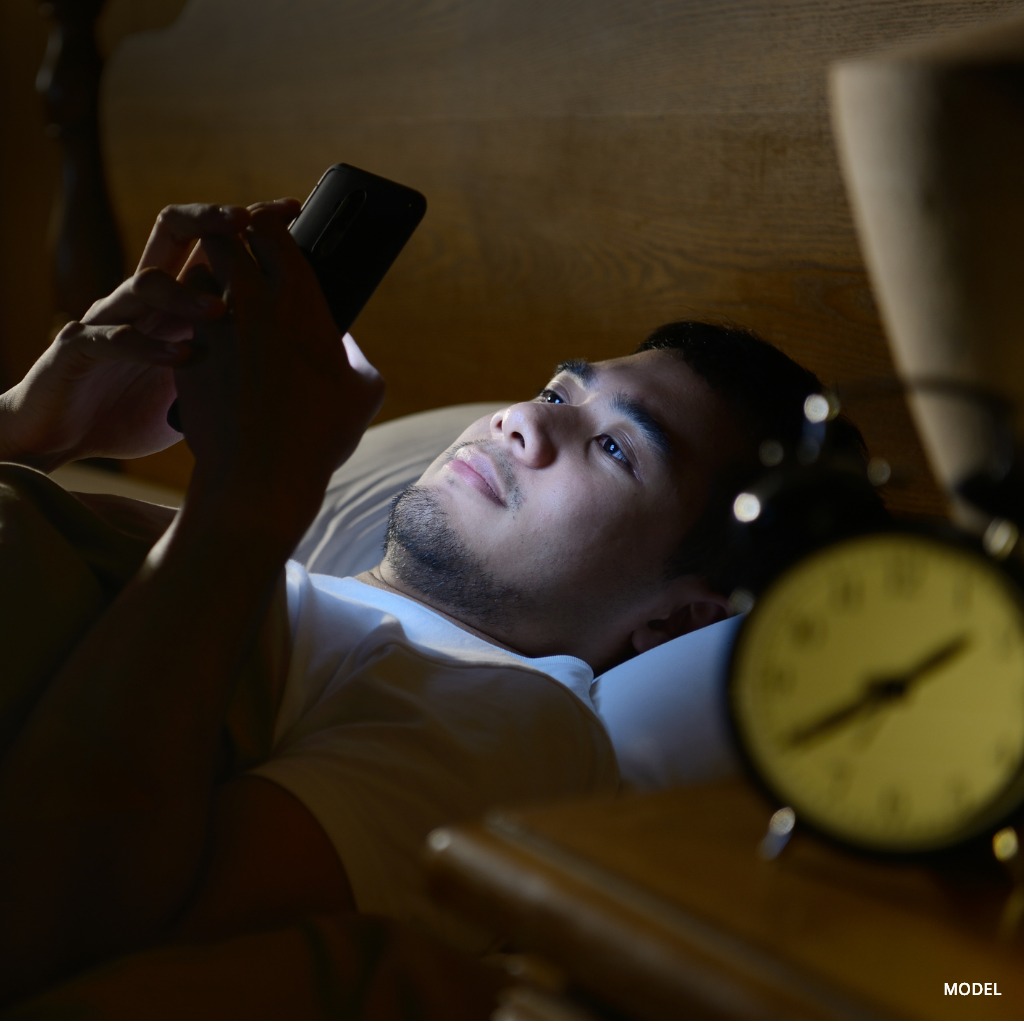Beauty Sleep – Why It Matters to Skin Health
When it comes to your skin’s health, if you don’t snooze, you lose. Without enough restful sleep, your skin can lose its vibrant healthy tone. And you lose a natural no-cost way to optimize your appearance. March is National Sleep Awareness Month so we’re going to take a closer look at why sleep and your skin need to be bffs.
When night falls, you may want to catch up on your Instagram or Netflix programs but what your skin wants – and needs – is to catch up on its to-do list of renewal and rejuvenation.
Your body constantly breaks down old cells and builds fresh new ones. Like the shoemaker’s elves in the fairy tale, the body does all this work at night while you’re fast asleep. That is when your body isn’t busy doing other things and can stay on task for cell turnover. Skimp on sleep, and the work doesn’t get done. And you end up with dark circles and a dull tired complexion. A slowdown in generating new skin cells can have more serious consequences. If you have any cuts or bruises, lack of sleep could also slow down the wound healing process.
Top Beauty Benefits of Sleep
 The potential benefits of adequate sleep for healthy skin according to the American Academy of Dermatology can include:
The potential benefits of adequate sleep for healthy skin according to the American Academy of Dermatology can include:
- Prevent (or clear up) a blotchy complexion
- Retain skin’s youthful firmness longer
- Reduce fine lines and wrinkles
- Keep complexion looking brighter and younger
How Much Sleep Do You Need?
Sleep needs vary with age and metabolism but 7 – 9 hours is the gold standard for most adults. If you consistently get less than 6 hours a night, it may show on your face. Start adding more shuteye and the results could literally be overnight success.
The National Sleep Foundation recently released new sleep recommendations based on specific age categories:
Newborns (0-3 months): 14-17 hours each day
Infants (4-11 months): 12-15 hours
Toddlers (1-2 years): 11-14 hours
Preschoolers (3-5): 10-13 hours
School age children (6-13): 9-11 hours
Teenagers (14-17): 8-10 hours
Adults (18-64): 7-9 hours
Older adults (65+): 7-8 hours
All those little glowing lights from your electronics in your bedroom at night? They may be diminishing the quality of your sleep. That’s because light at night messes with your body’s natural cell repair cycle.
Shut off the lights to get some shut-eye. Your sleep/wake cycle is default set to synch with the day’s cycle of light and dark. This cycle is known as circadian rhythm. Our bodies are basically the same model that evolved eons ago to sleep when the sun went down and wake as daylight dawned.
Mess with it too much and you may get hormonal disruptions too subtle to notice but enough to set off molecular chain reactions that can disrupt your sleep and affect your skin. More obvious signs can be dark circles under your eyes, more pronounced fine lines and a pale tired look. Disrupting the body’s circadian cycle can cause an overproduction of hormones like cortisol and adversely impact other aspects of your health as well such as immune system, blood sugar and cholesterol.
Improve your skin and your overall health with these sleep tips:
- Turn off devices 30 minutes before you plan to go to sleep
- Sleep in a darkened room with no electronics or cover them
- Cut down or cut out caffeine and alcohol
- Make sure your mattress and bedding optimize your comfort
When to See a Dermatologist
Life happens. Kids, travel, late nights, stress, illness – there are a myriad of reasons why sleep occasionally gets thrown off. If you’ve hit a patch of bad sleep and it shows on your skin, your CSI dermatologist can suggest a treatment such as dermabrasion, a chemical peel or mild laser resurfacing to rev up your skin cell turnover.
A wound that isn’t healing could signal a more serious issue and you should see one of the board -certified dermatologists at CSI as soon as possible.


 / 291 Reviews
/ 291 Reviews